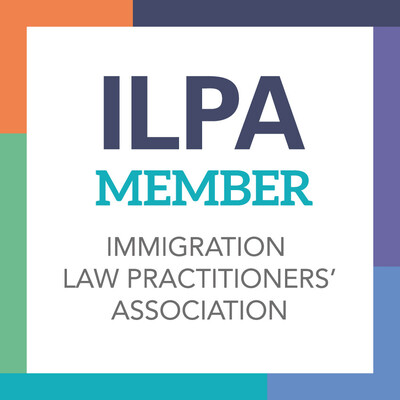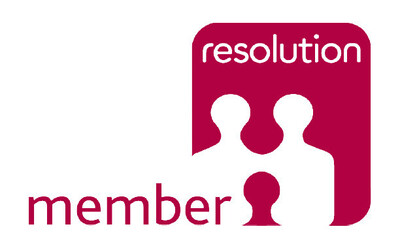Corporate and Commercial Agreements
Corporate and Commercial Agreements
There are various corporate and commercial agreements LS Legal Solicitors can assist you with. We can prepare an initial draft or assist you with analysing the existing or proposed agreement. We are well versed in representing clients in all aspects of corporate and commercial contracts, including :
- Licensing agreements
- Service agreements
- Sale and purchase agreements
- Franchise agreements
- Agency and distribution agreements
- Finance and loan agreements
- Tenancy agreements
- Shareholders, JV and partnership agreements
Licensing Agreements
A licencing agreement is most commonly used in the context of intellectual property law. IP can either be licenced out or in. For example, you might “license out” your intellectual property to another firm or organisation in exchange for consideration.
If you want to use someone else’s intellectual property to grow your own business, you might want to “license in.” The conditions of an IP license vary depending on the relationship between the licensor and the licensee and their respective bargaining position throughout the negotiation process.
Sometimes licence is also used within the context of land law, where a licence is a permission for someone to occupy an accommodation and does not give an occupier a legal interest in the accommodation or land. We assist clients with this aspect of land law as well, including tenancy agreements.
Service Agreements
A Service Agreement is a written contract between a service provider and a client that details the conditions of a specific service.
Parties
Client is an individual or company who hires another person or company to do a task or provide a service for them for consideration.
Service Provider could be a company or an individual and it is someone contracted to execute a work, project or task for a fee.
If you are a service provider, you should have an agreement for every service you provide, which could be one framework agreement or many individual contracts.
A service agreement is necessary to define each party’s obligations, for example how quickly a service should be provided and what happens if a payment is delayed.
What clauses may a Service Agreement have?
1. Payment
The contract should specify the fee payable for the service and a payment schedule for when a service provider will be paid. It may also specify if any resources, such as petrol or travel expenditures, would be repaid to the provider.
2. Deadline and Quality
One of the most important terms is to specify when the service should be provided. Sometimes, depending on the service and the agreement, there will be a need to identify what qualifications a service provider should have and to what level the service should be provided.
3. Confidentiality
If the service provider has access to a company’s or an individual’s private information, you can oblige them not to disclose sensitive information to third parties or even a rival.
4. Ownership
Suppose the service provider is developing a product, for example, a web designer has created a website design for a company. There will be a need to establish who owns the end product. There may also be a need to determine if the materials used should be the customer’s property or whether the service provider is using their own.
Franchising Agreements - for Franchisee and Franchisor
The United Kingdom is one of the more “mature” franchise markets among the countries that have used franchising to expand their businesses. According to the 2018 NatWest/British Franchise Association Franchise Survey, at that time there were 935 franchise systems in the United Kingdom. The survey also revealed that franchising contributed more than £17 billion to the UK economy, an increase of more than £2 billion since the last survey in 2015 (BFA/NatWest Franchise Survey, 2019).
In the United Kingdom, there are no particular franchise laws. Broadly, contract law governs the franchisor-franchisee relationship, with a multitude of legislation, voluntary codes and case law impacting both the relationship and the franchise agreement itself.
Usually, the agreement’s key terms may include:
- The rights granted to the franchisor
- The rights granted to the franchisee
- The goods and/or services to be provided to the franchisee
- The obligations of the franchisor
- The obligations of the franchisee
- The terms of payment for the franchise
- The duration of the agreement, which should be long enough to allow franchisees to return their initial investments and benefit from the franchise as much as possible
- The basis for any renewal of the agreement
- The terms upon which the franchisee may sell or transfer the franchised business and the franchisor’s possible pre-emption rights in this respect
- Provisions relevant to the use by the franchisee of the franchisor’s distinctive signs, trade name, trademark, service mark, store sign, logo or other distinguishing identification
- The franchisor’s right to adapt the franchise system to new or changed methods
- Provisions for termination of the agreement
Agency and Distribution agreement
Agency and distribution agreements are crucial to businesses in the UK and worldwide. Although they are similar, it is critical for business owners to grasp the differences between the two and how each should be used to benefit your organisation.
An agent acts as a go-between between the principal and the customer. The principle is the company owner or organisation that requires someone to market its products or services on its behalf. The agent will market or promote the principal’s products or services in exchange for compensation. An agent may have specialised knowledge of a geographic area or market that the principal is unfamiliar with.
A distributor resells the primary business owner’s goods or services. The contract of sale is between the end client and the distributor; the principal who made the products or provided the service is not involved. Before the items move to the ultimate client, the distributor will hold ownership of them. This is because, unlike an agency arrangement, a distributor purchases the items from the principal.
Key points of an agency agreement
- The agent’s liability for bad debts is restricted since the principal is responsible for determining a customer’s credit risk.
- There is a contract between the principal and the end client when items or services are acquired.
- While passing items and services to the ultimate client, the agent does not own them.
- The principal pays a commission to the agent (normally an agreed percentage of the price).
Key points of a distribution agreement
- Distribution agreements do not provide the distributor authority to negotiate or close deals on behalf of the parent firm.
- The distributor purchases the items directly from the manufacturer and resells them to the final consumer.
- The distributor purchases the items from the principal and the end client purchases the products from the distributor.
- The distributor profits from the margin on the sale of the goods to the end customer.
Finance and loan agreements
A loan agreement is a contract in which a lender – often a bank or a financial institution – lays out the terms and circumstances under which it is willing to provide a borrower with a loan.
A facility or a loan agreement usually has the following clauses:
1. The term of the loan, the amount of the loan and the interest rate.
2. Sanctions related to loan repayment, the possibility to extend the facility and clauses to check and confirm the borrower’s creditworthiness.
3. The boilerplate section - relatively basic sections outlining the parties’ contract information, the connection between the financial parties if there are several tenders, and the applicable law.
The length and complexity of the loan agreement depend on the amount of the facility, the parties involved and their risk tolerance.
Contact us
LS Legal Solicitors are well versed and highly experienced in providing advice and assistance on corporate and commercial matters. We appreciate that detailed and voluminous agreements may seem overly complex and onerous. However, we guarantee to make your experience as smooth and stress-free as possible.
For the quickest response, please WhatsApp or call us on +44 (0) 75 3595 9450. You can also contact us via email at info@LSLegaLUK.com or use the contact form to discuss your requirements further or arrange an appointment with one of our experts.


